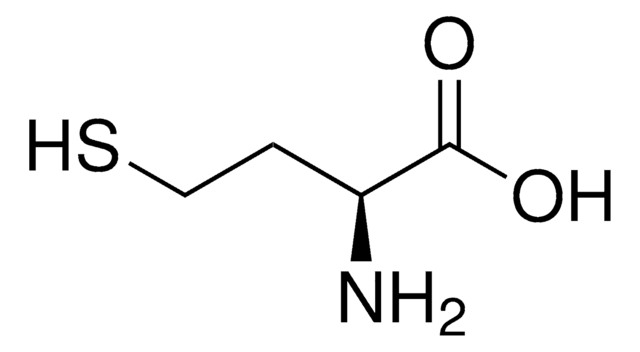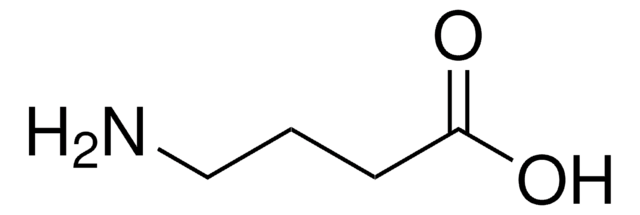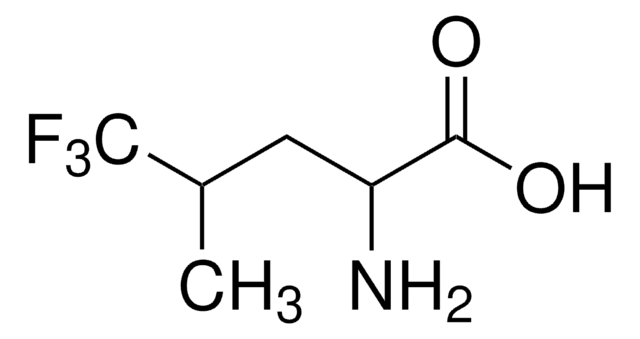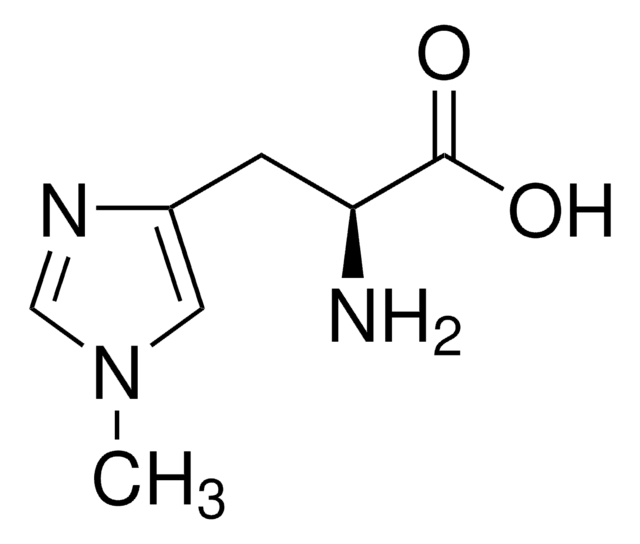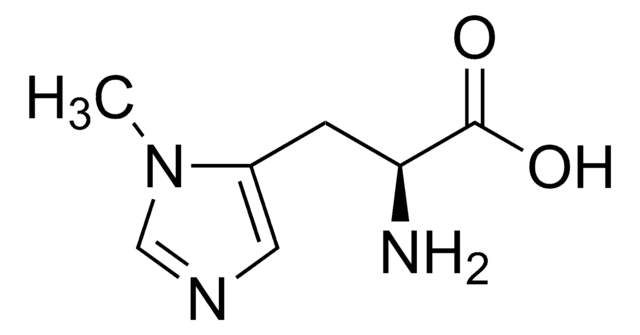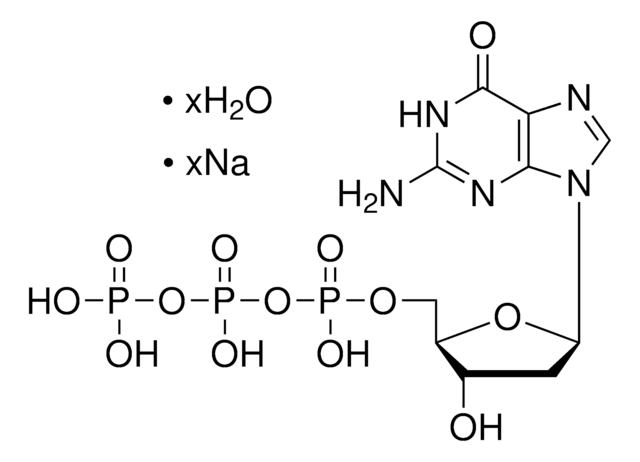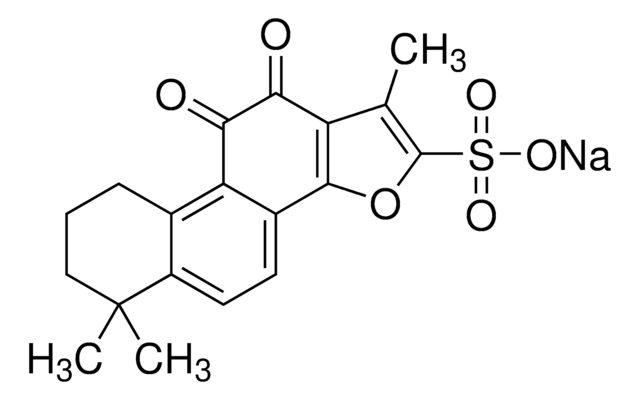H4002
DL-3-Hydroxynorvaline
≥98% (TLC)
Synonym(s):
HNV, α-Amino-β-hydroxyvaleric acid, 2-Amino-3-hydroxypentanoic acid, 3-Hydroxy-2-aminopentanoic acid, DL-β-Hydroxynorvaline
About This Item
Recommended Products
Product Name
DL-3-Hydroxynorvaline, ≥98% (TLC)
Quality Level
Assay
≥98% (TLC)
form
powder
color
white
application(s)
cell analysis
storage temp.
−20°C
SMILES string
CCC(O)C(N)C(O)=O
InChI
1S/C5H11NO3/c1-2-3(7)4(6)5(8)9/h3-4,7H,2,6H2,1H3,(H,8,9)
InChI key
LGVJIYCMHMKTPB-UHFFFAOYSA-N
Looking for similar products? Visit Product Comparison Guide
Biochem/physiol Actions
Signal Word
Danger
Hazard Statements
Precautionary Statements
Hazard Classifications
Eye Dam. 1 - Skin Irrit. 2 - STOT SE 3
Target Organs
Respiratory system
Storage Class Code
11 - Combustible Solids
WGK
WGK 3
Flash Point(F)
Not applicable
Flash Point(C)
Not applicable
Personal Protective Equipment
Regulatory Listings
Regulatory Listings are mainly provided for chemical products. Only limited information can be provided here for non-chemical products. No entry means none of the components are listed. It is the user’s obligation to ensure the safe and legal use of the product.
JAN Code
H4002-BULK:
H4002-VAR:
H4002-250MG:
H4002-25MG:
H4002-1G:
H4002-100MG:
H4002-5G:
Choose from one of the most recent versions:
Certificates of Analysis (COA)
Don't see the Right Version?
If you require a particular version, you can look up a specific certificate by the Lot or Batch number.
Already Own This Product?
Find documentation for the products that you have recently purchased in the Document Library.
Our team of scientists has experience in all areas of research including Life Science, Material Science, Chemical Synthesis, Chromatography, Analytical and many others.
Contact Technical Service
